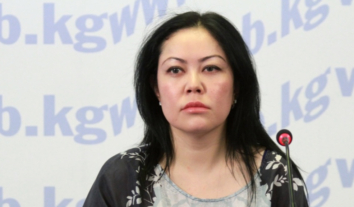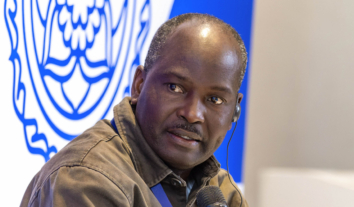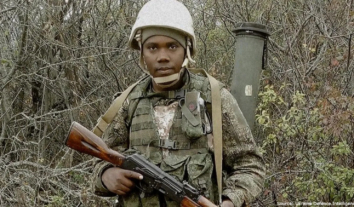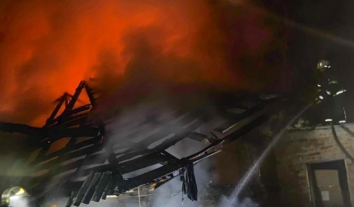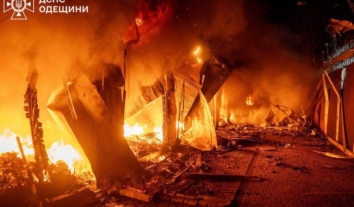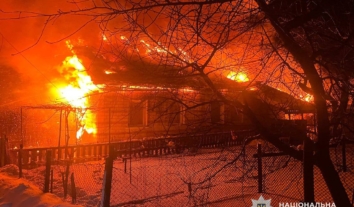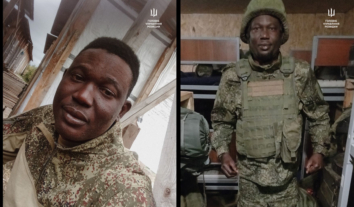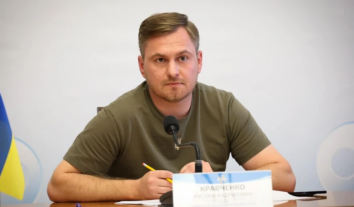What triggers world wars?
Currently, Russia is trying to use fear as a tool against democracy and freedom: fear of a nuclear attack, fear of mass civilian casualties, fear of the destruction of cities, fear of economic instability, and fear of an energy crisis. It is fear that Russia uses to push people around the world into calling for an end of support for Ukraine.
ZMINA published a TED Talk by Anton Drobovych, Director of the Ukrainian Institute of National Memory and military serviceman, titled “Remembering the past. Fighting for the Future.” He delivered the speech at the International Human Rights Conference Freedom or Fear in Kyiv on January 7, 2023.
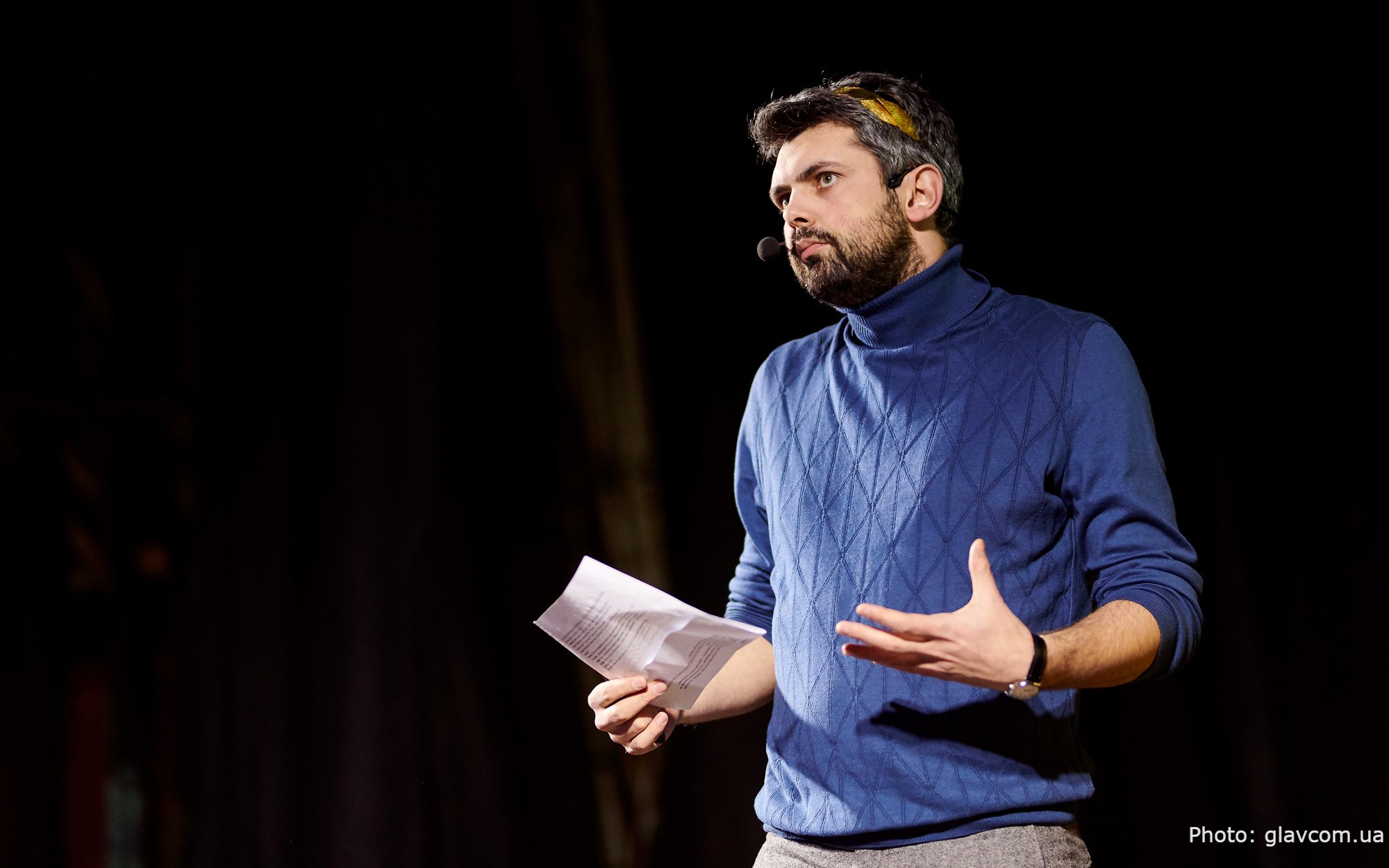 Anton Drobovych
Anton DrobovychI will tell you two stories from the eve of World War II about the war in Europe. Just like now, the stories are about cowardly leaders and how two European wars turned into one World War.
Let’s go back to 1938. There was a powerful country in Europe – Nazi Germany with a charismatic, handshake-worthy ruling leader, Adolf Hitler.
It is hard to imagine now, but he attended all the conferences. British, French, and Americans greeted and talked to him at all international events. Time Magazine recognised him as Person of the Year in 1938.
He came across as a strong leader. People said that the politicians in their countries should follow his example because of the strong German economy. They said, “Look at how Germany is rising from its knees. He must be taken seriously. Hitler has valuable opinions.”
Only a few politicians, such as Winston Churchill, took issue with Hitler.
Then Hitler annexed Austria and incorporated it into his empire.
We often talk about imperialism now, especially regarding Russian imperialism. Allow me to remind you that World War II was also an anti-imperialistic war. It is important to note that Hitler’s Germany was not the only empire in the world at that time.
Emboldened by his victorious annexation of Austria, Hitler gave the European leaders an ultimatum, mainly focusing on the two most powerful countries in the League of Nations – Britain and France. He told them he had one final territorial claim. He promised them that, once he was satisfied, he would not seize any more territory, and everything would go back to business as usual after this final claim – Czechoslovakia.
He explained to the French, British, Italians and the rest of Europe that Czechoslovakia had the wrong borders after the First World War. The German-speaking people that lived there needed to be protected. He claimed that Czechoslovakia had not been properly coping with these tasks and promised to come and put things in order.
Everyone said that Hitler’s actions were inconvenient as the European countries had friendships, alliances, agreements, and gentlemen’s agreements with Czechoslovakia; and by the way, so did the Soviet Union.
Eventually, the German Party of Czechoslovakia, located in the western part of the country, insisted on declaring independence. They began to put pressure on the government, and Hitler, having such allies inside Czechoslovakia, sent an ultimatum: either European countries agreed to the dismemberment of Czechoslovakia, or there would be war. As a response, numerous countries started policies of appeasement.
Neville Chamberlain, the British Prime Minister and Édouard Daladier, the French Prime Minister, agreed to everything Hitler demanded. They went to Munich in the fall of 1938 and concluded the Munich Agreement, informally known as the “Munich betrayal”, as it is also referred to in historiography.
Under this agreement, an independent and sovereign country and member of the League of Nations was divided into parts.
The Czech government agreed that the largest part of the country would be ceded to Germany and other small parts to Poland and Hungary. So, a shadow of Czechoslovakia remained after much of its territory was partitioned.
After that, Hitler said again that he promised to make no more territorial claims. – We have torn off a piece from Czechoslovakia. That’s it. Nothing else is needed. He promised that those were the last territorial agreements.
The nations of Europe agreed, and France and Britain guaranteed the Czech government’s security.
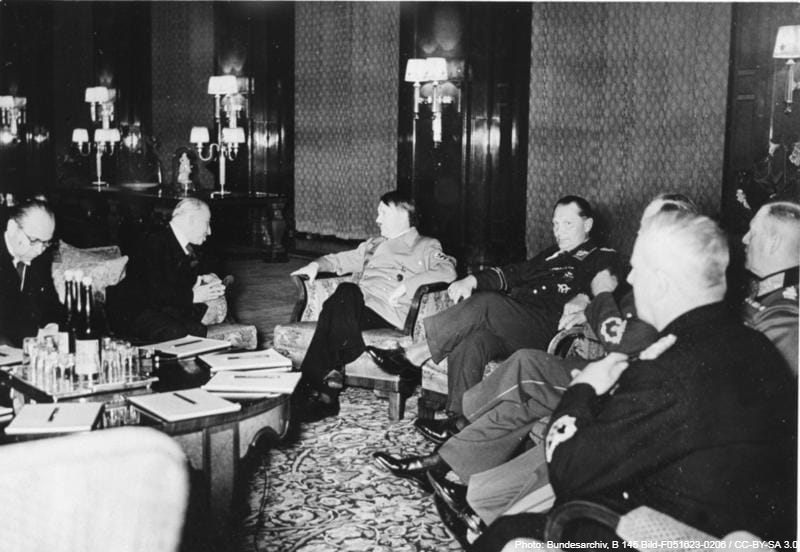 Czechoslovak President Emil Hácha and Adolf Hitler in Berlin
Czechoslovak President Emil Hácha and Adolf Hitler in BerlinSubsequently, in March 1939, Adolf Hitler made an ultimatum to the leader of what remained of the Czech Republic, saying: “You either voluntarily join the protectorate, or I will destroy you because I have the Armed Forces and no one will stand up for you, as it was in Munich. And if you disagree, my artillery is just 30 kilometres from Prague. No problem; all the bloodshed will be on your conscience.”
That was it. Czechoslovakia ceased to exist. It found itself dismembered and torn to pieces. In the end, none of the guarantees given to it sufficed. Some countries of the League of Nations raised deep concerns. In truth, by that time, everyone understood that nobody needed the League of Nations any longer because everyone saw what happened to Austria and Czechoslovakia… and the whole world realised Hitler lied in Munich.
A gathering was held in Munich – Mussolini, Hitler, Chamberlain, and Daladier. Czechoslovakia was not invited.
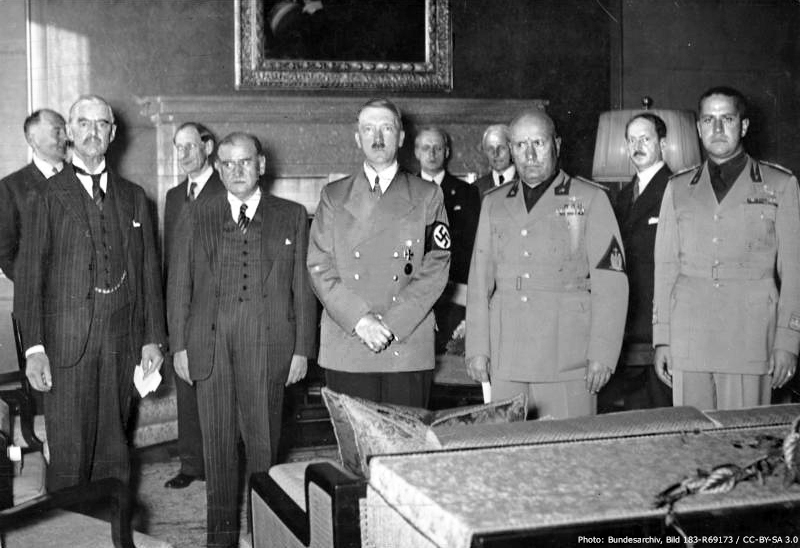 From left to right: Neville Chamberlain, Édouard Daladier, Adolf Hitler, Benito Mussolini, and Galeazzo Ciano pictured before signing the Munich Agreement on September 30, 1938
From left to right: Neville Chamberlain, Édouard Daladier, Adolf Hitler, Benito Mussolini, and Galeazzo Ciano pictured before signing the Munich Agreement on September 30, 1938This was my introduction to Czechoslovakia without Czechoslovakia. I put historical analogies before you on the table as an example of how, on the one hand, Europe betrayed Europe, and the world betrayed the world. Everyone kept silent. The principle of “business as usual” and the policy of appeasement won.
Sometimes, it’s a problem when you’re right
Only Churchill beat the drum, asking, “Are you crazy? When we swallow that, tomorrow we won’t stop Hitler.” And he was right. As events unfolded, and he turned out to be right, the people of Britain expelled the prime minister, and Churchill took his place, the only nuance being that he was a prime minister during the world war. If only the countries had listened to him earlier!
 Winston Churchill
Winston ChurchillThe population of Czechoslovakia was 14 million, and Germany had 79 million. Czechoslovakia surely was one of the most powerful economies in Europe. Of course, Germany had more soldiers, tanks, and planes, but the Czechs could still resist.
If only their allies would stand up for the Czechoslovakia. There were 41 million in Britain and Wales alone and 545 million in the British Empire. The French Empire had 111 million. If they deployed the army in the Czechoslovak Republic, the Germans would not attack because they would crush the Germans.
The Czechoslovak government accepted the Munich Agreement which they were not a party. It was an agreement without them. They accepted authoritative, strong leaders who guaranteed security and believed them. And then, in March, Hitler issued the ultimatum that either you cease to exist or I will attack you.
The Czechoslovak government did not resist. It did not mobilise people for war. And that’s it. The country ceased to exist and ceased to be an entity.
Finland’s example of how to behave in case of aggression
The second example also happened on the eve of World War II in 1939.
Finland. It was a small country with a population of 3.7 million people. It was located next to the Soviet Union, which also issued an ultimatum to its smaller neighbour: either you surrender and cede the territories that we will tell you to give, or we will attack you.
Finland refused. Then, the Soviet Union offered to exchange territories, but the Finns refused the offer. In response, the Soviet Union recognized the communist government of a fictional Finnish Democratic Republic. Some rebels initially fled from Finland to the Soviet Union and proclaimed themselves as the rightful government of Finland. The Soviet Union then declared war on Finland’s de jure and de facto government.
Allow me to compare the two countries’ populations. The Soviet Union in 1939 had 170 million people. Finland had 3.7 million. The Finns withstood. It was an existential war, like we have now with the Russian war against Ukraine. 3.7 million citizens raised a 300,000-strong army. It was an amazing achievement.
The Soviet Union was especially prepared for this war, although many people in the former USSR say that they had been suddenly attacked in 1941. However, in 1939, Joseph Stalin was already ready for this war. He had from 400,000 to 700,000 people prepared for this war.
Finland had 32 tanks, and the Soviet Union had 2,500. Finland had 114 aircraft. The Soviet Union had 3,800.
The war lasted 3.5 months. For the Finns, it was a matter of principle. They would not allow the capture of a single village. Finnish snipers could put down a company of Soviet soldiers in a battle over a small patch of forest. They dug into their land. They did not listen to the League of Nations, the most respected figures in Europe, or deeply concerned neighbours. Not only that, but they were fighting for themselves. Because they saw what happened to Austria and Czechoslovakia, they had the courage to stand until the end.
After 3.5 months, the Finns had lost part of their territory. The Soviet Union made a peace agreement. According to the different calculations, the USSR lost 100,000 to 300,000 people. English-speaking historical records are more accurate than Russian ones. The Finns lost 70,000 people and 10% of their territory. The Allies forced them to agree to this because the Soviet Union suddenly found itself in the victors’ camp as a member of the Allies, and all its sins were suddenly forgotten. However, this is a story for another day.
Finland survived because they never listened to anyone and fought to the end. Those who supported Finland must also be mentioned for historical accuracy, acknowledging that Finland had its relationship with the Germans, introducing ethical and political nuances. However, it was an existential war. According to the Molotov-Ribbentrop Pact, if Finland had lost, Hitler would have abandoned Finland
However, the Finns emerged victorious. They lost territory and lives, but they survived. Finland continued to exist as a political entity after World War II. It became a role model of how to act and how to approach politics. They demonstrated that “business as usual” does not justify appeasement.
This has been a historical example from World War II. The cowardice and the lack of leadership that Winston Churchill was criticizing when he was not yet prime minister. He criticized the French and the United States for that kind of appeasement strategy, which didn’t work out.
The Soviet Union retreated from its borders with Finland. With heavy losses, the Soviet Union had to retreat because the Finns fought like a hedgehog against an aggressor who didn’t expect its prickles.
Formally, Finland might have lost the war, but in reality, they won because they retained their independence.
But then, the world saw no strength in the League of Nations and that principles, political agreements, and treaties did not work. Only brute force won. Everyone understood that if one aggressor acted with impunity, another could as well.
These two examples from the middle of the last century show us that if the elites behave weakly and spinelessly, then local wars begin. When local wars end with the aggressors' victory, and the whole world quietly accepts the aggressors' triumphs, a world war begins. Don't be confused. A world war doesn't start when you assist victims, providing them with weaponry; it begins when you remain silent, promised "deep guarantees" like in Munich that no one else will make any claims.
Please remember how world wars start.

